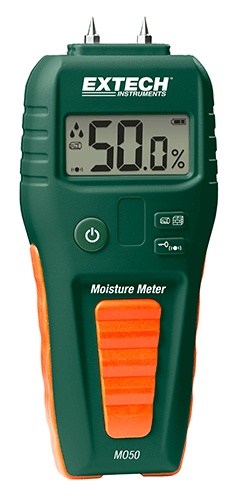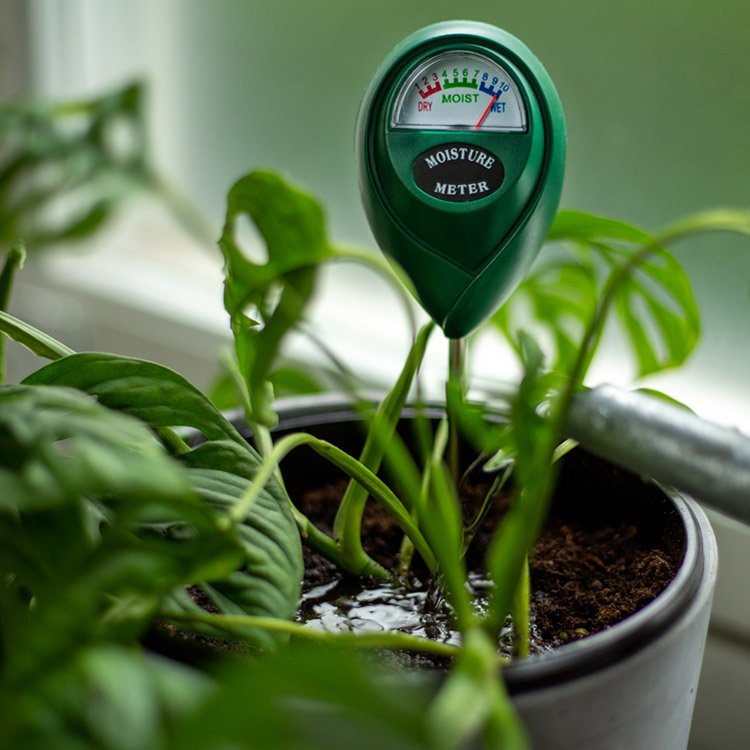Top 10 Advantages of Using a Moisture Meter for Definite Measurements in Your Home
Top 10 Advantages of Using a Moisture Meter for Definite Measurements in Your Home
Blog Article
The Ultimate Guide to Dampness Meters: A Comprehensive Introduction and Exactly How They Can Conserve You Money
In the realm of structure maintenance, construction, and numerous markets, the significance of properly determining wetness degrees can not be overstated. Moisture meters offer as indispensable devices in detecting and monitoring moisture web content in materials, assisting in stopping costly damages and making sure the quality of items. Understanding the subtleties of different types of dampness meters, their applications, and the prospective cost-saving advantages they use can be a game-changer for businesses and specialists alike. Finding just how these gadgets can not just streamline procedures yet likewise add to financial savings is a trip worth starting.
Kinds Of Dampness Meters
Various types of wetness meters are readily available for various applications in various industries. One common type is the pin-type wetness meter, which measures the electric resistance in between two pins inserted into a material. This kind is ideal for timber, drywall, and various other structure products. Pinless dampness meters, on the various other hand, usage electro-magnetic sensing unit plates to check a bigger location without triggering damages to the product's surface area. Moisture Meter. These meters are excellent for quickly assessing moisture degrees in large locations such as wall surfaces and floors.

Moreover, there are additionally specialty wetness meters created for particular materials like grain, hay, or soil. These meters supply accurate dampness readings customized to the one-of-a-kind properties of the product being evaluated. Infrared dampness meters determine the thermal residential or commercial properties of a product to identify its dampness material non-invasively, making them valuable for applications where pin or pinless meters may not be suitable. Recognizing the various types of moisture meters offered can aid markets pick the most appropriate tool for their details moisture dimension needs.

Benefits of Using Moisture Meters
Dampness meters provide vital advantages in properly examining and keeping track of wetness degrees in diverse materials and settings (Moisture Meter). One of the key benefits of using wetness meters is the prevention of prospective damage brought on by excess moisture. By detecting and dealing with high dampness degrees early, wetness meters assist to avoid mold development, rot, and structural damages in structures, conserving both money and time on repair services. In addition, dampness meters help in ensuring the top quality of products throughout building or manufacturing processes. By precisely measuring dampness content, these tools assist keep the honesty of timber, drywall, concrete, and other products, lowering the threat of flaws or failures.
Furthermore, using moisture meters can lead to raised power performance. In farming setups, moisture meters play a crucial role in optimizing crop yields by enabling farmers to check soil wetness levels and make educated watering choices.
Exactly How to Pick the Right Dampness Meter
Choosing the suitable wetness meter involves thinking about essential variables such as product compatibility, measurement range, and calibration precision. When picking a moisture meter, it's important to make certain that the meter is ideal for the specific material you will certainly be screening. Various materials have varying electric residential properties that can impact dampness analyses, so selecting a meter created for your product is critical for accurate results. Furthermore, take into consideration the dimension variety of the wetness meter. Ensure that the meter can detect dampness levels within the array required for your applications. Calibration precision is one more important element to keep in mind. Choose a moisture meter with reputable calibration to make certain regular and precise readings. Some meters might need routine calibration modifications, so recognizing the calibration procedure is essential. By carefully examining these factors, you can choose a dampness meter that fulfills your requirements and go to this website offers accurate dampness measurements for your tasks.
Proper Techniques for Dampness Meter Use

Expense Cost Savings With Moisture Meter Applications
Just how can the calculated usage of wetness meters lead to significant expense financial savings across numerous industries? In the agriculture sector, wetness meters help in determining the optimum time for gathering plants, stopping over-drying or excess wetness that can impact the last item's quality.
Similarly, in building, moisture meters assist protect against expensive problems by finding dampness degrees in building materials, such as timber or concrete, which can lead to structural concerns if not attended to promptly. By determining trouble areas early, professionals can take restorative actions to avoid substantial fixings or substitutes, ultimately saving time and cash.
In addition, in the food processing industry, wetness meters are crucial for monitoring item high quality and ensuring compliance with security guidelines. By properly gauging moisture content in food, makers can protect against spoilage, maintain freshness, and reduce waste, resulting in considerable expense financial savings. On the whole, the strategic application of moisture meters is sites a valuable investment that can lead to substantial cost reductions and boosted effectiveness throughout different markets.
Final Thought
To conclude, wetness meters are useful tools for measuring and spotting dampness degrees in different materials. By utilizing the right dampness meter and following correct strategies, individuals can efficiently avoid costly problems triggered by excess wetness. Buying a high quality moisture meter can lead to substantial price savings in the lengthy run by determining prospective issues early and allowing prompt removal. Ultimately, dampness meters are necessary instruments for maintaining the stability and longevity of products and structures.
Wetness meters offer as vital devices in identifying and keeping an eye on moisture content in materials, assisting in avoiding expensive problems and guaranteeing the top quality of products. Infrared wetness meters gauge the thermal buildings of a material to identify its dampness content non-invasively, making them helpful for applications where pin or pinless meters may not be ideal.Moisture meters offer vital benefits in accurately monitoring and evaluating wetness degrees in varied products and environments. In agricultural settings, moisture meters play a vital duty in maximizing plant returns by enabling farmers to monitor soil moisture levels and make informed irrigation choices.In final thought, wetness meters are useful devices for gauging and detecting moisture levels in different products.
Report this page